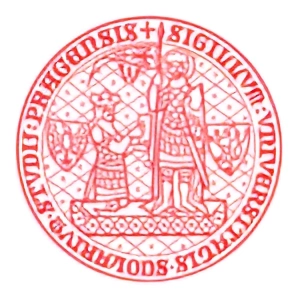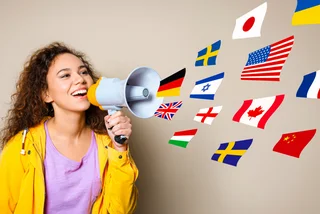The last evening in April is associated with fire across Czechia as Witches Night (Čarodějnice) bonfires blaze across villages and towns to symbolize the end of winter and the beginning of spring. Right now we're hoping this tradition works to rid us of the current weather and finally bring on spring!
The night of April 30 to May 1 is also called Witch Burning (Pálení čarodějnic) and "Philip and James Night" (Filipojakubská noc) as, from the 19th century, May 1 became the name and feast days of Philip and James (Filip a Jakub) in the Czech calendar.
The evening is marked by bonfires (táborové ohně) in the garden and gatherings of neighbors and friends. Czech towns usually organize social events, in addition to the bonfire also host live music, food stalls, and children's activities.

Whether you want to spark up a heated conversation over this weekend's bonfire or any time of year, the Czech language is crackling with "hot phrases."
We asked the staff at ÚJOP UK, a division of Charles University that specializes in teaching Czech to foreigners, to stoke the fires of our language knowledge with these fire idioms and expressions:
idioms
- When a problem really bothers you, you say: pálí mě to, which means "it burns," in the sense that you think about it so much it hurts.
- If the problem you are thinking about isn't your own but you got involved anyway, you might get yourself into hot water since, as the Czechs say, "don't put out the fire that doesn't burn you." (Nehas, co tě nepálí). This is another way of saying, mind your own business.
- If you don't agree then you can say: pálí mi to, meaning “It burns me" or it affects me, too.
- If this particular problem concerns you so much that you spend a lot of time on it, so much so that it makes you angry, and upset, you can say in Czech: dopálilo mě to, “It has burned me up.”
- But tread lightly so as not to get too angry because if you do, Czechs like to say: rozohnil jsem se, or "I got fiery hot," which usually means one loses control and says or does something inappropriate.
- Finally, when a deadline is urgent you can describe its as burning (termíny hoří), meaning that it needs to be sorted out quickly. If you fail to do so, you might attract the heated attention of your boss. When this happens you say: propaluje mě očima, or “he's burning me through with his glare,” and the ground gets hot at work, making you feel like you're in hell!
FIRE vocabulary
- oheň – fire
- táborový oheň – campfire
- pálit – burn, be hot
- hořet – burn like a fire
Do you want to speak Czech like a native? Study at ÚJOP UK!












 Reading time: 2 minutes
Reading time: 2 minutes 

















